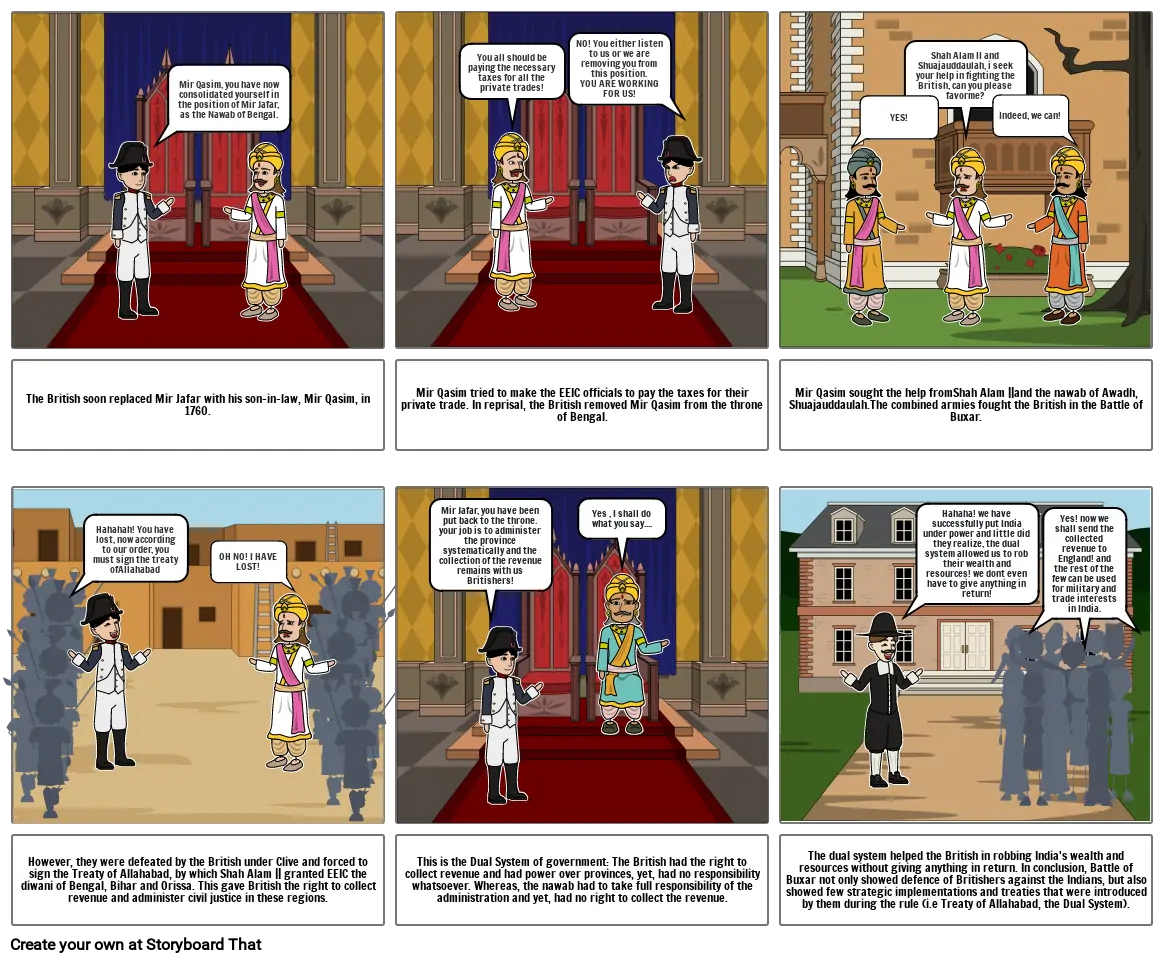The Battle of Buxar

טקסט Storyboard
- Mir Qasim, you have now consolidated yourself in the position of Mir Jafar, as the Nawab of Bengal.
- You all should be paying the necessary taxes for all the private trades!
- NO! You either listen to us or we are removing you from this position.YOU ARE WORKING FOR US!
- YES!
- Shah Alam II and Shuajauddaulah, i seek your help in fighting the British, can you please favorme?
- Indeed, we can!
- The British soon replaced Mir Jafar with his son-in-law, Mir Qasim, in 1760.
- Hahahah! You have lost, now according to our order, you must sign the treaty ofAllahabad
- OH NO! I HAVE LOST!
- Mir Qasim tried to make the EEIC officials to pay the taxes for their private trade. In reprisal, the British removed Mir Qasim from the throne of Bengal.
- Mir Jafar, you have been put back to the throne. your job is to administer the province systematically and the collection of the revenue remains with us Britishers!
- Yes , I shall do what you say....
- Mir Qasim sought the help fromShah Alam ||and the nawab of Awadh, Shuajauddaulah.The combined armies fought the British in the Battle of Buxar.
- Hahaha! we have successfully put India under power and little did they realize, the dual system allowed us to rob their wealth and resources! we dont even have to give anything in return!
- Yes! now we shall send the collected revenue to England! and the rest of the few can be used for military and trade interests in India.
- However, they were defeated by the British under Clive and forced to sign the Treaty of Allahabad, by which Shah Alam || granted EEIC the diwani of Bengal, Bihar and Orissa. This gave British the right to collect revenue and administer civil justice in these regions.
- This is the Dual System of government: The British had the right to collect revenue and had power over provinces, yet, had no responsibility whatsoever. Whereas, the nawab had to take full responsibility of the administration and yet, had no right to collect the revenue.
- The dual system helped the British in robbing India's wealth and resources without giving anything in return. In conclusion, Battle of Buxar not only showed defence of Britishers against the Indians, but also showed few strategic implementations and treaties that were introduced by them during the rule (i.e Treaty of Allahabad, the Dual System).
נוצרו מעל 30 מיליון לוחות סיפור

